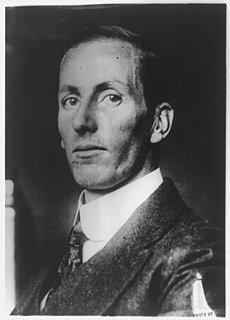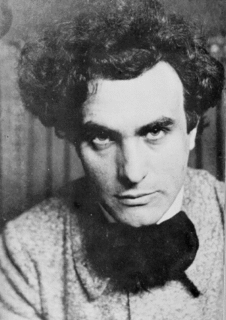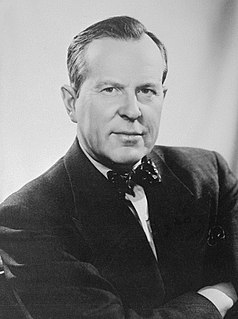A Quote by John Maynard Keynes
It is not the ownership of the instruments of production which it is important for the State to assume. If the State is able to determine the aggregate amount of resources devoted to augmenting the instruments and the basic rate of reward to those who own them, it will have accomplished all that is necessary. Moreover, the necessary measures of socialization can be introduced gradually and without a break in the general traditions of society.
Related Quotes
Society in every state is a blessing, but government even in its best state is but a necessary evil; in its worst state an intolerable one; for when we suffer, or are exposed to the same miseries by a government, which we might expect in a country without government, our calamity is heightened by reflecting that we furnish the means by which we suffer.
Some writers have so confounded society with government, as to leave little or no distinction between them; whereas they are not only different, but have different origins ... Society is in every state a blessing, but Government, even in its best state, is but a necessary evil; in its worst state, an intolerable one.
Every change in conditions will make necessary some change in the use of resources, in the direction and kind of human activities, in habits and practices. And each change in the actions of those affected in the first instance will require further adjustments that will gradually extend through the whole of society. Every change thus in a sense creates a "problemfor society, even though no single individual perceives it as such; it is gradually "solvedby the establishment of a new overall adjustment.
The purpose of finance is to enable business to acquire the ownership of capital instruments before it has saved the funds to buy and pay for them. The logic used by business in investing is things that will pay for themselves is not today available to the 95% born without capital. Most of us owe instead of own. And the less the economy needs our labor, the less able we are to "save" our way to capital ownership.
Smith could not be expected to have anticipated the horrors that were to come. But even in his own time, he was a defender of certain state actions that he thought necessary in order to safeguard the good effects of commercial society (Smith did not speak of 'capitalism' and was acquainted only with an early undeveloped form of it). Among these state actions the chief was general public education.
If the state, with all of the emotional resources at its command, cannot finance its most basic and vital activities without resort to compulsion, it would seem that large private organizations might also have difficulty in getting the individuals in the groups whose interests they attempt to advance to make the necessary contributions voluntarily.
It is unfortunately none too well understood that, just as the State has no money of its own, so it has no power of its own. All the power it has is what society gives it, plus what it confiscates from time to time on one pretext or another, there is no other source from which State power can be drawn. Therefore every assumption of State power, whether by gift or seizure leaves society with so much less power; there is never, nor can be, any strengthening of State power without a corresponding and roughly equivalent depletion of social power.
There must not be one law for the Jew and another for the Arabs....In saying this, I do not assume that there are tendencies toward inequalirty or discrimination. It is merely a timely warning which is particularly necessary because we shall have a very large Arab minority. I am certain that the world will judge the Jewish State by what it will do with the Arabs, just as the Jewish people at large will be judged by what we do or fail to do in this state where we have been given such a wonderful opportunity after thousands of years of wandering and suffering.

































